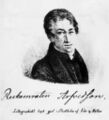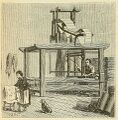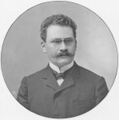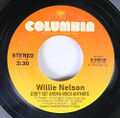Template:Selected anniversaries/January 12: Difference between revisions
No edit summary |
No edit summary |
||
| (31 intermediate revisions by the same user not shown) | |||
| Line 1: | Line 1: | ||
<gallery> | <gallery> | ||
|| | ||1319: Kamal al-Din Hasan ibn Ali ibn Hasan al-Farisi dies ... scientist. He made two major contributions to science, one on optics, the other on number theory. No birth date. Pic: book page. | ||
||1580: Jan Baptist van Helmont born ... chemist, physiologist, and physician. He worked during the years just after Paracelsus and the rise of iatrochemistry, and is sometimes considered to be "the founder of pneumatic chemistry". Van Helmont is remembered today largely for his ideas on spontaneous generation, his 5-year tree experiment, and his introduction of the word "gas" (from the Greek word chaos) into the vocabulary of science. Pic. | |||
File:Pierre de Fermat.jpg|link=Pierre de Fermat (nonfiction)|1665: Mathematician [[Pierre de Fermat (nonfiction)|Pierre de Fermat]] dies. He is recognized for his discovery of an original method of finding the greatest and the smallest ordinates of curved lines, which is analogous to that of [[Calculus (nonfiction)|differential calculus]], then unknown. | File:Pierre de Fermat.jpg|link=Pierre de Fermat (nonfiction)|1665: Mathematician [[Pierre de Fermat (nonfiction)|Pierre de Fermat]] dies. He is recognized for his discovery of an original method of finding the greatest and the smallest ordinates of curved lines, which is analogous to that of [[Calculus (nonfiction)|differential calculus]], then unknown. | ||
||1777 | ||1777: Hugh Mercer born ... general and physician. | ||
||1792 | File:Johan August Arfwedson.jpg|link=Johan August Arfwedson (nonfiction)|1792: Chemist and academic. [[Johan August Arfwedson (nonfiction)|Johan August Arfwedson]] born. Arfwedson will discover the element lithium in 1817 by isolating it as a salt. | ||
||1822 | ||1822: Étienne Lenoir born ... engineer, designed the internal combustion engine. Pic. | ||
|| | ||1848: Franz Ritter von Soxhlet born ... agricultural chemist from Brno. He invented the Soxhlet extractor in 1879 and in 1886 he proposed pasteurization be applied to milk and other beverages. Soxhlet is also known as the first scientist who fractionated the milk proteins in casein, albumin, globulin and lactoprotein. Pic. | ||
||1866 | ||1853: Gregorio Ricci-Curbastro born ... mathematician born in Lugo di Romagna. He is most famous as the inventor of tensor calculus. Pic. | ||
||1857: Knut Johan Ångström born ... physicist. He investigated the radiation of heat from the sun, and terrestrial nocturnal emission and its absorption by the Earth's atmosphere; to that end devised various delicate methods and instruments, including his electric compensation pyrheliometer, invented in 1893, apparatus for obtaining a photographic representation of the infra-red spectrum (1895) and pyrgeometer (circa 1905) Pic. | |||
||1861: James Mark Baldwin born ... philosopher and psychologist who was educated at Princeton under the supervision of Scottish philosopher James McCosh and who was one of the founders of the Department of Psychology at the university. He made important contributions to early psychology, psychiatry, and to the theory of evolution. Pic. | |||
||1866: The Royal Aeronautical Society is formed in London. | |||
File:Jacquard loom with two children and a dog (circa 1877).jpg|link=Jacquard loom (nonfiction)|1875: Children reprogram [[Jacquard loom (nonfiction)|Jacquard loom]] to perform [[scrying engine]] functions. | File:Jacquard loom with two children and a dog (circa 1877).jpg|link=Jacquard loom (nonfiction)|1875: Children reprogram [[Jacquard loom (nonfiction)|Jacquard loom]] to perform [[scrying engine]] functions. | ||
||1876 | File:Jack London 1903.jpg|link=Jack London (nonfiction)|1876: Author [[Jack London (nonfiction)|Jack London]] born. He will become one of the first fiction writers to obtain worldwide celebrity and a large fortune from his fiction alone. | ||
||1878: David Raymond Curtiss born ... mathematician. He served as president of the Mathematical Association of America from 1935 to 1936. | |||
||1899 | ||1899: Paul Hermann Müller born ... chemist and academic, Nobel Prize laureate. | ||
||1903: Igor Kurchatov born ... physicist and academic ... widely known as the director of the Soviet atomic bomb project. Pic. | |||
| | ||1906: Kurt August Hirsch born ... mathematician. | ||
|| | ||1907: Sergei Pavlovich Korolev ... Soviet rocket engineer and spacecraft designer during the Space Race between the United States and the Soviet Union in the 1950s and 1960s. He is regarded by many as the father of practical astronautics. Pic. | ||
||1908 | ||1908: Clement Hurd born ... illustrator. | ||
||1908 | ||1908: A long-distance radio message is sent from the Eiffel Tower for the first time. | ||
File:Hermann Minkowski.jpg|link=Hermann Minkowski (nonfiction)|1909: Mathematician and academic [[Hermann Minkowski (nonfiction)|Hermann Minkowski]] dies. He showed that Albert Einstein's special theory of relativity can be understood geometrically as a theory of four-dimensional space–time, since known as the "Minkowski spacetime". | File:Hermann Minkowski.jpg|link=Hermann Minkowski (nonfiction)|1909: Mathematician and academic [[Hermann Minkowski (nonfiction)|Hermann Minkowski]] dies. He showed that Albert Einstein's special theory of relativity can be understood geometrically as a theory of four-dimensional space–time, since known as the "Minkowski spacetime". | ||
||1916 | ||1915: Herbert Robbins born ... mathematician and statistician. He did research in topology, measure theory, statistics, and a variety of other fields. The Robbins lemma, used in empirical Bayes methods, is named after him. Robbins algebras are named after him because of a conjecture (since proved) that he posed concerning Boolean algebras. The Robbins theorem, in graph theory, is also named after him, as is the Whitney–Robbins synthesis, a tool he introduced to prove this theorem. Pic. | ||
||1916: Ruth R. Benerito born ... chemist and inventor. Pic. | |||
||1840: Helen Blanchard dies ... inventor ... sewing machines. Pic. | |||
||1929 | ||1929: Jaakko Hintikka born ... philosopher and logician. Hintikka is regarded as the founder of formal epistemic logic and of game semantics for logic. Pic. | ||
| | ||1942: World War II: United States President Franklin D. Roosevelt creates the National War Labor Board. | ||
|| | ||1958: Charles Hatfield dies ... meteorologist, rainmaker. Pic search (cool) yes: https://www.google.com/search?q=charles+hatfield&oq=Charles+Hatfield | ||
|| | File:Don't Get Aroma Much Anymore.jpg|link=Don't Get Aroma Much Anymore|1978: Willie Nelson releases his version of "'''[[Don't Get Aroma Much Anymore]]'''". | ||
|| | ||1984: Earl Muetterties born ... inorganic chemist born in Illinois, who is known for his experimental work with boranes, homogeneous catalysis, heterogeneous catalysis, fluxional processes in organometallic complexes and apicophilicity. Pic. | ||
|| | ||1986: Lars Leksell dies ... physician and neurosurgeon ... invented radiosurgery. Pic search: https://www.google.com/search?q=lars+leksell | ||
|| | ||1994: Gustav Naan dies ... physicist and philosopher. Pic search yes: https://www.google.com/search?q=gustav+naan | ||
||2004 | ||1996: Joachim Nitsche dies ... mathematician and academic. Image search good: https://www.google.com/search?q=Joachim+Nitsche | ||
||1996: Bartel Leendert van der Waerden dies ... mathematician and historian of mathematics. Pic. | |||
||2000: Margaret Hutchinson Rousseau dies ... chemical engineer - pencillin factory. Pic. | |||
||2001: Engineer William Hewlett dies ... co-founder, with David Packard, of the Hewlett-Packard Company (HP). Pic. | |||
||2003: Alan Nunn May dies ... English physicist and Soviet spy ... who supplied secrets of British and United States atomic research to the Soviet Union during World War II. Pic. | |||
||2004: Olga Ladyzhenskaya dies ... mathematician and academic. Pic. | |||
File:Deep Impact.png|link=Deep Impact (spacecraft) (nonfiction)|2005: [[Deep Impact (spacecraft) (nonfiction)|Deep Impact]] launches from Cape Canaveral on a Delta II rocket. It will be the first spacecraft to eject material from a comet's surface. | File:Deep Impact.png|link=Deep Impact (spacecraft) (nonfiction)|2005: [[Deep Impact (spacecraft) (nonfiction)|Deep Impact]] launches from Cape Canaveral on a Delta II rocket. It will be the first spacecraft to eject material from a comet's surface. | ||
||2009: Arne Næss dies ... philosopher and environmentalist. He will be an important intellectual and inspirational figure within the environmental movement of the late twentieth century, advocating for biological diversity and the understanding that each living thing is dependent on the existence of other creatures in the complex web of interrelationships. He will coin the phrase "deep ecology". Pic. | |||
||2010: Praveen Chaudhari born ... physicist and academic. Pic search:https://www.google.com/search?q=praveen+chaudhari | |||
||2012: Basil Gordon dies ... mathematician at UCLA, specializing in number theory and combinatorics. He obtained his Ph.D. at California Institute of Technology under the supervision of Tom Apostol. Ken Ono was one of his students. Gordon is well known for Göllnitz–Gordon identities, generalizing the Rogers–Ramanujan identities.[2] He also posed the still-unsolved Gaussian moat problem in 1962. Pic: https://www.math.ucla.edu/news/memoriam-basil-gordon-professor-mathematics-emeritus-1931-%E2%80%93-2012 | |||
</gallery> | </gallery> | ||
Latest revision as of 18:01, 7 February 2022
1665: Mathematician Pierre de Fermat dies. He is recognized for his discovery of an original method of finding the greatest and the smallest ordinates of curved lines, which is analogous to that of differential calculus, then unknown.
1792: Chemist and academic. Johan August Arfwedson born. Arfwedson will discover the element lithium in 1817 by isolating it as a salt.
1875: Children reprogram Jacquard loom to perform scrying engine functions.
1876: Author Jack London born. He will become one of the first fiction writers to obtain worldwide celebrity and a large fortune from his fiction alone.
1909: Mathematician and academic Hermann Minkowski dies. He showed that Albert Einstein's special theory of relativity can be understood geometrically as a theory of four-dimensional space–time, since known as the "Minkowski spacetime".
1978: Willie Nelson releases his version of "Don't Get Aroma Much Anymore".
2005: Deep Impact launches from Cape Canaveral on a Delta II rocket. It will be the first spacecraft to eject material from a comet's surface.






